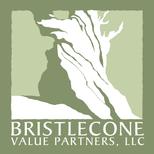 Author: Jean-Luc Nouzille, Bristlecone Value Partners LLC
Author: Jean-Luc Nouzille, Bristlecone Value Partners LLC
Covestor model: Large Cap Value
Disclosure: Long EOG, PFE, MDT, NRG, AXP, BAC
Is the world financial system on the brink of collapse? This question was recently raised by George Soros, the well-known hedge-fund manager and philanthropist. We don’t know, but there are certainly diverging economic signs in Europe and the U.S. While here at home the recovery seems to be taking hold and employment numbers are slowly improving, in Europe the situation is deteriorating very fast and is reminiscent of our own banking crisis in 2008.
The S&P 500 was down very slightly in November, but investors continued to experience wild swings throughout the month, indicating that their answer to Soros’ question could change from “yes” to “no” on a daily basis. The Large Cap Value Model portfolio outperformed a little over the same period. As we approach the end of the year, the portfolio remains slightly ahead of the market.
Stocks that contributed positively to our performance in November were EOG Resources (EOG), Pfizer (PFE), and Medtronic (MDT). The top detractors were NRG Energy (NRG), American Express (AXP), and Bank of America (BAC).
During the month, our only trade was to dispose of our long-held investment in JP Morgan (JPM). JP Morgan is a bank that weathered the banking crisis here in the U.S. better than most, thanks to a greater emphasis on conservative underwriting for residential loans during the boom times. Management was also very shrewd and opportunistic in the acquisitions of Bear Stearns and Washington Mutual. However, we feel that developments in Europe have the potential to impair JP Morgan’s value more than that of our other bank portfolio holdings (Wells Fargo and Bank of America).
As we highlighted in a recent commentary, the European sovereign debt crisis creates a new set of issues for U.S. banks, particularly for those that are very active overseas and in derivative markets. Our concerns stem from the fact that public disclosures about banks’ sovereign debt exposures are useless in order to ascertain the level of risk with a reasonable degree of confidence. Derivative hedges used to lower the gross exposure are only as reliable as the creditworthiness of the bank’s counterparties, and the ability to enforce the language embedded in the contract. Worryingly, some ideas recently floated by European officials raised doubts about the effectiveness of credit default swaps, a popular derivative instrument used in protecting against such default.
The history of financial crises around the world teaches us that creditors never come out unscathed. JP Morgan shares have been a rewarding investment throughout our ownership, providing us with positive returns in excess of the market. We felt, however, that with the deepening crisis across the Atlantic, the opacity of the bank’s real exposure to the European situation was a risk that we were no longer willing to take.




